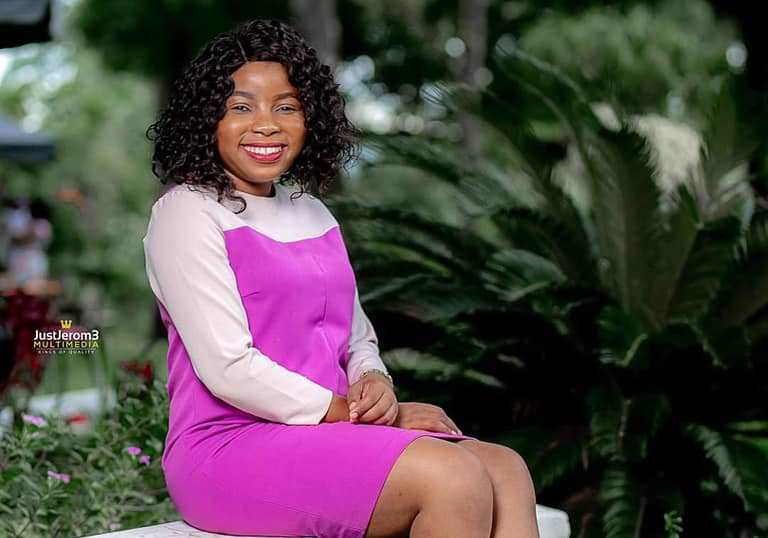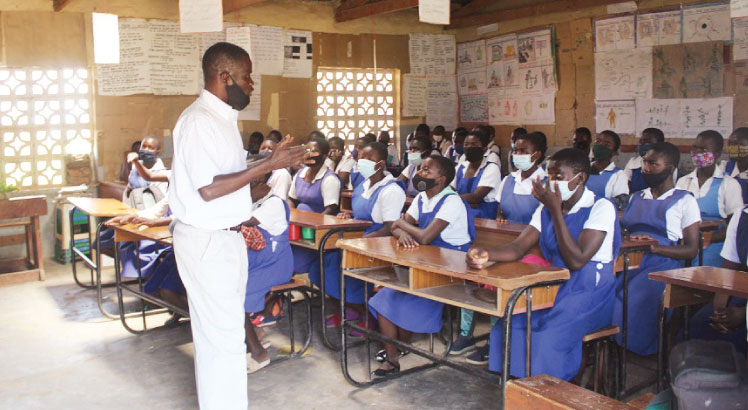Land ownership: A farfetched dream for women
Like most rural girls in the country, the story of 29-year-old Christie Banda is no different.
Growing up, she witnessed a lot of gender-based violence (GBV), including in her own household and somehow felt her future would be threatened.

But luckily, Christie realised early on that education was the only way out for her.
“That thought kept me sane and gave me hope for a better future. If I had not gone to school, my situation would have been different. Education is key to many opportunities in a girl’s life as well as key to stopping GBV,” she explains.
But contrary to her dreams of a brighter future with education as key, the quest for a job was not as easy as she thought it would be, with many people in the country still unemployed despite attaining tertiary education.
Christie volunteered in several jobs before she landed a paying job at Bangula Support Organisation (Baso) as programme manager in 2016 where among other things she was responsible for youth empowerment and sexual reproductive health and rights (SRHR) programmes.
“I completed my Bachelor of Social Science studies at Chancellor College in 2014, but did not find a paying job until 2016. I did a lot of volunteering including with International Citizen Services, Open Arms Home and worked as an investigations officer with the Office of the Ombudsman. The job market in Malawi is not easy to manouver. You must always put in work when an opportunity is presented to you,” she explains.
While working at Baso, they also linked up in several interventions with Foundation for Civic Education and Social Empowerment (Focese) and when a vacancy came up in Focese in 2017, she applied and was hired as programme manager.
Later she was promoted to the position of executive director.
As an advocacy and service delivery young women led organisation, Focese is working in communities to engender holistic positive transformation in the lives of the most vulnerable.
The organisation works on feminist point of view and it always takes a right-based approach to ensure full range of indivisible, inter-dependent and inter-related rights so that young women and girls are fully empowered to minimise the power gap between men and women.
Focese interventions are aimed at ensuring women’s rights are realised and respected and their education is prioritised.
They also ensure that basic needs of a girl/young woman, including SRH services are accessible.
“We have given rural young women and girls the opportunity to realise their rights and potential; and to ensure space is created for young women and girls to participate effectively and meaningfully in decisions that affect them, including political decisions. We also support young girls to go back to school and we are providing scholarships,” she explains.
Furthermore, Christie believes education, economic empowerment and women’s decision-making in households are essential to empowering vulnerable women and adolescent girls to exercise their rights and improve their lives.
“We work towards key causes of vulnerability and marginalisation for women. As such, we promote access to sexual, reproductive and health rights (SRHR) services, productive resources, justice, economic opportunities, as well as training women and girls in vocational skills. We have also community-based tailoring centres in both Nsanje and Balaka,” she adds.
Under her leadership, Focese has facilitated a network of 40 youth organisations that fight and stand up for access to SRHR services in the country called Alliance for Youth SRHR Organisations (AYSO) where Focese is a lead partner.
They have also helped to end more than 150 child marriages in the areas where they work and are supporting 15 girls with scholarships to help them finish their secondary school studies.
However, in their efforts to implement these interventions, inadequate resources is the biggest challenge they face.
“Mostly, we do not have enough resources to reach many vulnerable, excluded children and the youth we work for. Advocacy alone without service delivery is not enough. We need to economically empower vulnerable girls to resist sexual gender-based violence (GBV),” she states.
The organisation realises that efforts to decrease gender disparities in education, support for economic-opportunities and decision-making in households are essential to empower young women and girls exercise their reproductive rights and access sexual reproductive health (SRH) services, improving health outcomes in the end.
She says: “Linkages with income-generating activities for adolescents and community economic development projects can serve as the first and sometimes the only, opportunity to reach adolescents with SRH programmes.
“In view of this, we need support to provide economic opportunities for the adolescent girls and young women in addressing the inequalities present in the geographic areas fuelling the vulnerabilities and marginalisation of girls and young women, including malnutrition issues.
The last born of three adds that they also lack support in promoting girls’ education.
Focese works with victims of child marriages and teen mothers who when encouraged to go to school, end up going back to the marriages because they fail to provide them with necessary school materials to keep them in school, empower them to support themselves and their children; and make them agents of change.
“We also need to have safe space where girls running from abuse would be accommodated temporarily,” she adds.
Originally from Nkhata-Bay, Christie was born and raised in Blantyre. At the age of nine after the death of her mother, she moved in with her aunt.
She went to Malosa Secondary School in Zomba where she was selected to and proceeded to obtain her Bachelor’s degree at Chancellor College in 2014.
She is pursuing her Master of Science in Management Studies with the Malawi Institute of Management (MIM).
Going forward, she encourages fellow young women and even men to strive and be agents of change in their own communities to make the world a better place for everyone.





